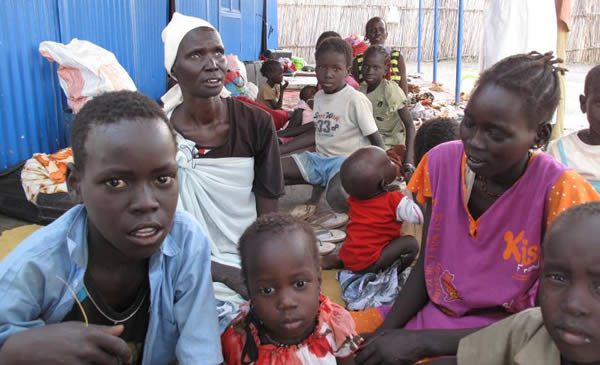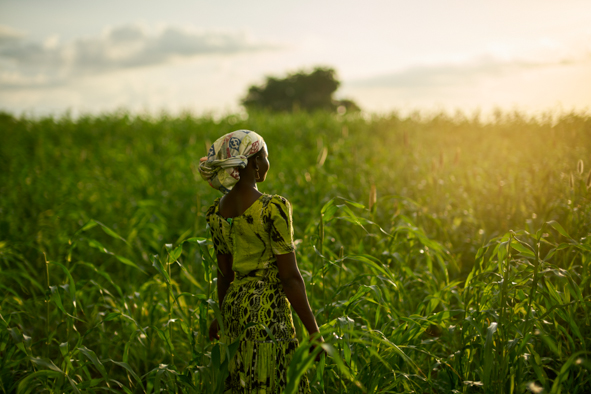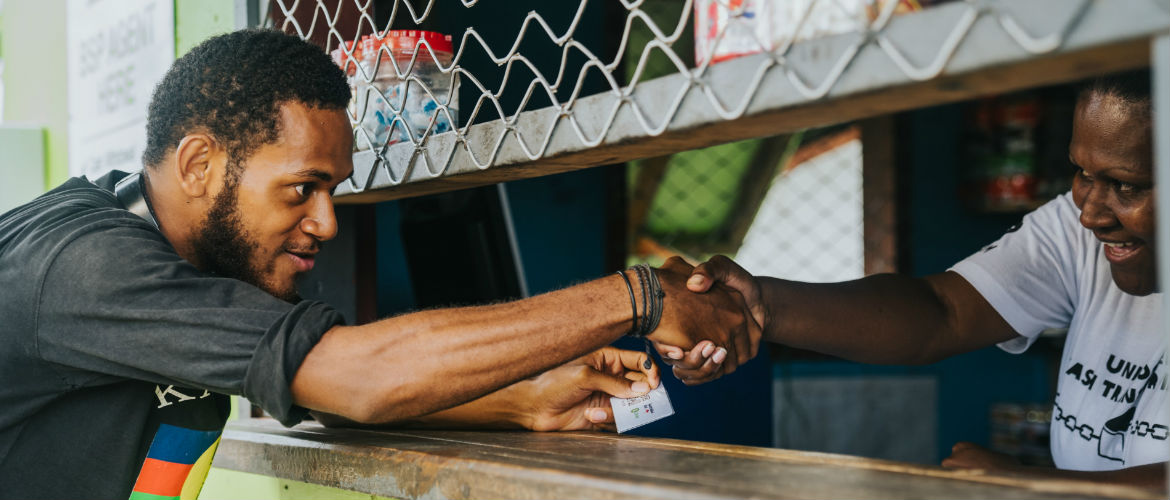Martha Bol, a widow, and her children, spent their first night back in Leer county in southern Sudan sleeping outside in the cold. It wasn’t quite the homecoming she was expecting, but she was still excited to be back after spending the last two decades living on the outskirts of Khartoum, in the north of Sudan.
“I was born here and I will stay here”, she said. “This is our land and our chance to be free.”
Martha and several other families had temporarily camped out in the yard of a government building in Leer town. Their household belongings, all they could carry with them, were scattered all around. A few mats, some blankets, a few pots and pans. Suitcases. Recently-laundered clothes hung on bamboo fences to dry in the afternoon sun.
The families were all originally born in the south but left during Sudan’s decades-long civil war, which finally ended in 2005 after claiming more than two million lives. Their journey back by boat, chartered by the Government of Southern Sudan, had been delayed many times and eventually took 11 days. Too late for them to register to vote in the landmark referendum – in which southern Sudanese will decide if they want to remain part of a united Sudan or secede and become the world’s newest nation.
The families are among tens of thousands of southerners who had been living in the north and who have returned to the south in the last few months. Thousands more are likely to follow.
For many like Martha, they’ve been away for so long that they either can’t remember where they lived or their houses no longer exist.
Huge challenges lie ahead. The family will need to find land to settle; work out how to earn some money and adjust to a new way of life.
They are returning to one of the least developed regions on earth, and putting additional strain on villages and communities that already struggle to find enough water and food. 80 percent of adults cannot read and write; there are few paved roads, and limited numbers of schools and health clinics. Less than half the population are able to access safe drinking water.
Martha told me her husband, a soldier, died in the fighting. They used to be farmers, she said, but she’d long-forgotten that way of life and had no idea how she would earn a living and feed her family.
“Its been a long time,” she sighed. “I don’t even know the village where I used to live… if anything still exists.“
“You cannot compare life in the north to here. Khartoum is more developed, but things were not easy for us. I’m happy to be back even though we have no house, and no job”, she said. “I’m happy to be back”, she insisted again.
“I want my children to go to school; to live in peace and not experience the difficulties we had; to live a better life in the future.”
This weekend southern Sudan votes in an historic referendum, to decide whether to remain part of a united Sudan or secede and become the world’s newest country. Whatever the outcome, after decades of war, southern Sudan is one of the least developed regions on earth and will need long-term support.


 Doris*, daughter, 5; Pamila*, 2. Christina grows maize and she was shown how to make compost as part of the CRAFS (Climate Resilient Agriculture and Food Systems) programme.
Doris*, daughter, 5; Pamila*, 2. Christina grows maize and she was shown how to make compost as part of the CRAFS (Climate Resilient Agriculture and Food Systems) programme.